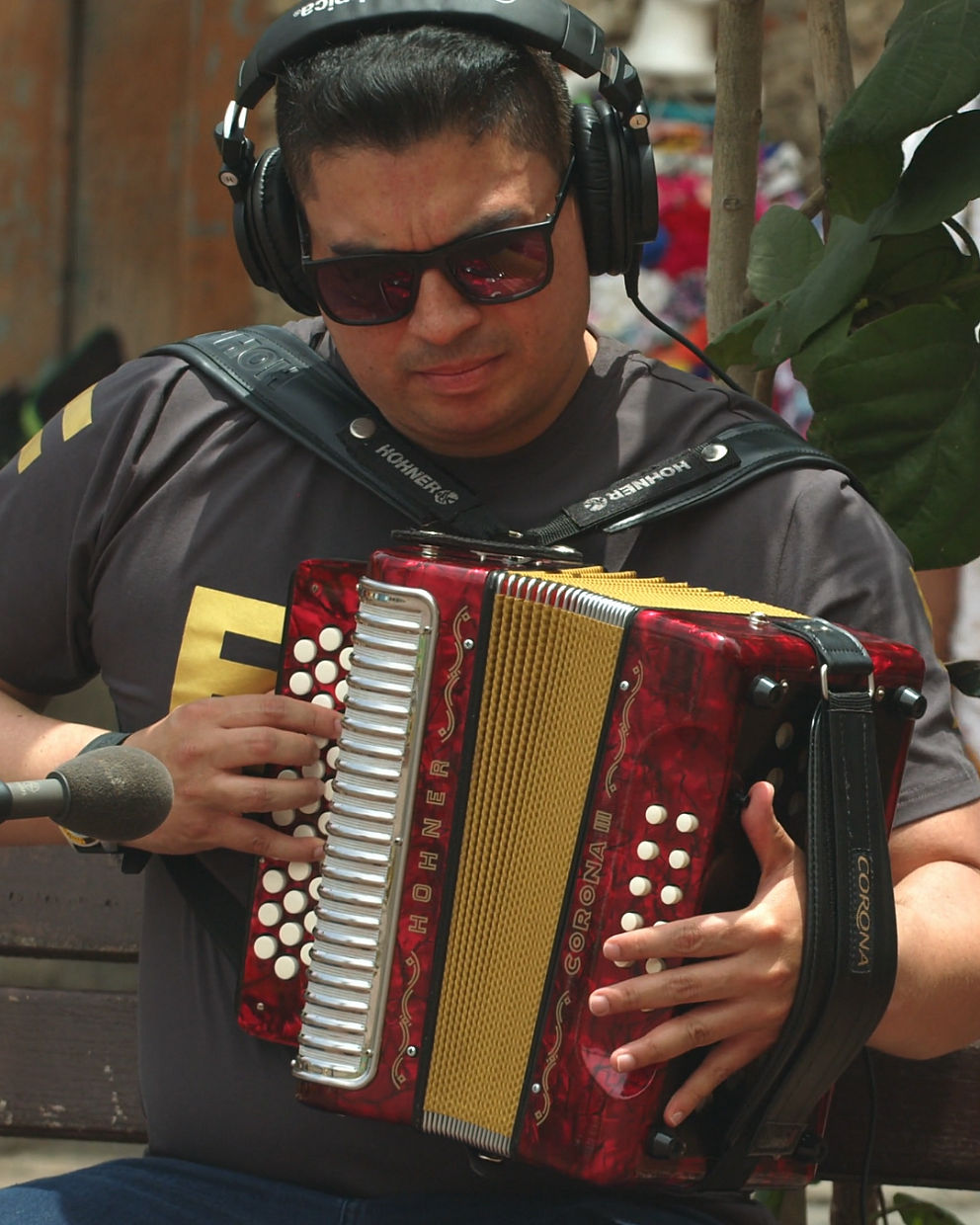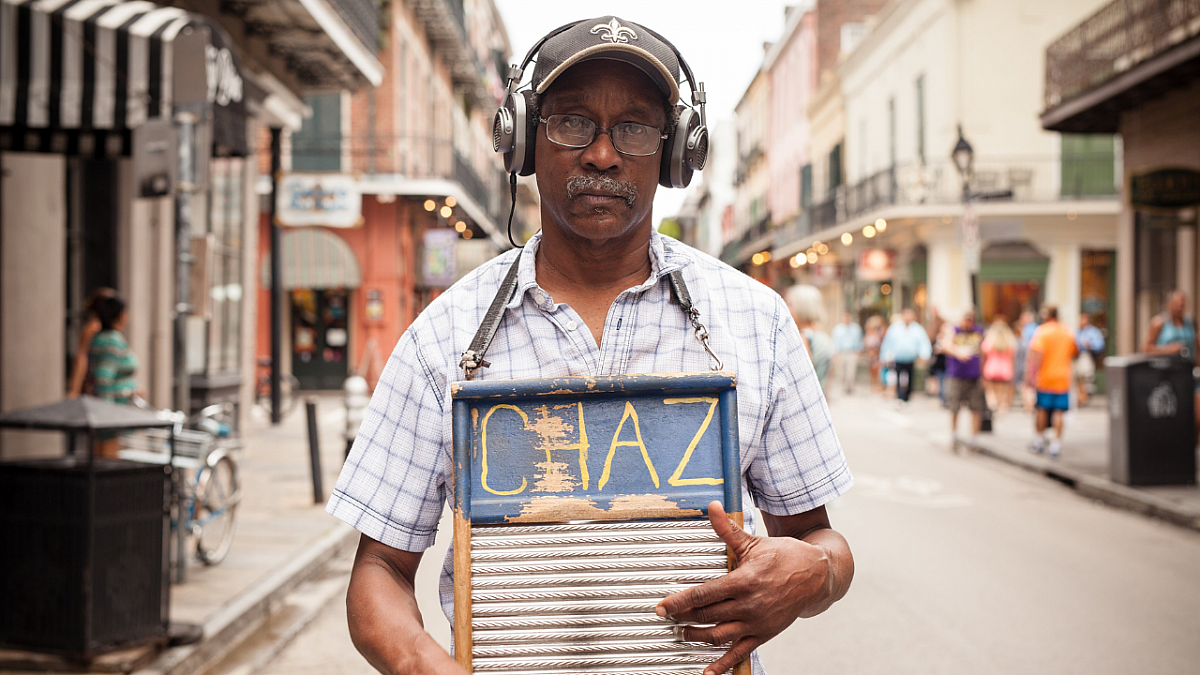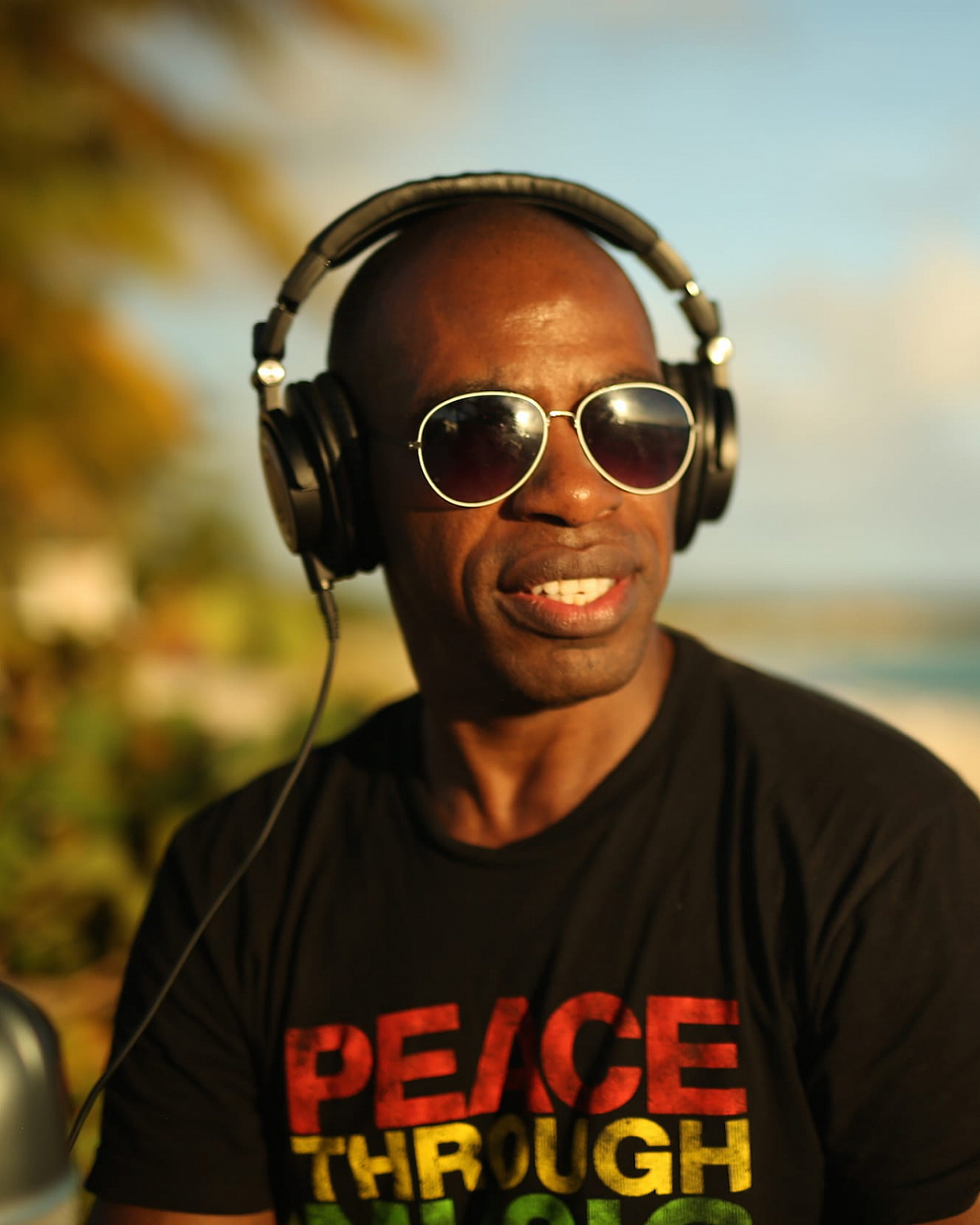From Africa to the Americas: The Musical Heritage of “Ataole”

"Ataole" Song Around The World is Playing For Change's latest commemoration in honor of the International Day for People of African Descent. This song showcases the connection between the bridges that unite Palenque, Colombia, and Angola's musical traditions, featuring emerging artists around the world.
The African Roots of Colombia and Brazil Connect Through Music
Deeply rooted in the history of the forced migration of African people during the transatlantic slave trade, Angola served as a major point of origin for enslaved individuals brought to the Americas, creating lasting cultural connections between Africa and countries like Colombia and Brazil.
Specifically, San Basilio de Palenque was founded in the 17th century by escaped enslaved Africans and is considered the first free African town in the Americas. It was later declared a Masterpiece of the Oral and Intangible Heritage of Humanity by UNESCO in 2005.
Since then, the community has preserved many African traditions, including language, music, dance, and religious practices, making it a living testament to African heritage in the Americas. Among the most important of these traditions are the drumming practices. The drums are used in religious ceremonies and rituals, often associated with African spiritual practices. The rhythms and music are believed to have spiritual significance and are used to connect with ancestors and deities.
Festival de Tambores de Palenque | Palenque Drum Festival (Documentary)
These drumming traditions have influenced various musical genres in Colombia and beyond. Elements of these rhythms can be found in cumbia, champeta, and other Afro-Colombian musical styles. These African rhythms, instruments, and musical styles have parallels in Brazilian musical traditions such as samba, candomblé, maracatu, and capoeira.
Recommended stories: Black History Month | Ancient Instruments
Batata: The Master Drummer of Palenque
The most well-known drummer figure is Batata III. Being the third in line in the most important dynasty of percussionists (or tamboleros, as they are known in the Caribbean region), Paulino Salgado Valdez, born on May 29, 1927, is considered the greatest performer of the San Basilio de Palenque tradition.
Hacha, Machete y Garabato - Paulino Salgado (Batata III)
While performing various jobs to make a living, from masonry to cane cultivation, his grandfather, Pedro Salgado Cañate (Batata I), taught him the rudiments of bullerengue, gaita, cumbia, son Palenquero, and lumbalú, a funerary rhythm that uses the pechiche drum, an element reserved for a select few, including the Batata family.
At 19 years old, Batata III traveled to Barranquilla, where he worked various jobs while participating in musical projects such as Los Gaiteros de Chengue, Carlos Franco's group, La Cumbiamba de Palma y Paulino alongside folklorist Roberto Palma, and Grupo Palma Africana.
After arriving in Bogotá in 1979, he was able to dedicate himself almost entirely to music, first touring the world with Sonia Osorio's ballet until 1985, and then with Totó la Momposina's group, with whom he recorded three albums starting in 1991.
Graciela Salgado , Jose de la Cruz valdez y Paulino Salgado Batata | Medley
Thanks to this, he was invited to record with singer Andres Cabas and the group Alé Kumá. In France, with the support of Lucas Silva and his label Palenque Records, he recorded the albums The King of Champeta and Radio Bakongo in the style of champeta with his group Batata y su Rumba Palenquera.
Watch this special playlist inspired by the rhythms of Colombia and Africa!
FEATURED ARTISTS 🎶
Louis Mhlanga
Kyoto, Japan

Louis Mhlanga is a highly accomplished musician from Zimbabwe. Although a guitar player by profession, he loves all instruments, from the traditional to the modern. "My music is just an expression of my experiences and the connection I have with day-to-day events," says Mhlanga. "It is also about the happiness I feel when I can reach other souls through music."6
How we met: Our guide while in Johannesburg, Lesego Rampolokeng, told us about his good friend, Louis Mhlanga, whom he described as a more electrifying guitar player than Jimi Hendrix. Wow. We had to meet him. Lesego called him and set up a meeting with him. After telling him who we were and what our vision was, he said the only time he had available was right then, so he gave us directions to his place and we recorded in his backyard. The spontaneity of PFC is amazing and one of the secrets of beauty the project possesses.
Raúl Tolingas
Luanda, Angola

Raul Fernandes Da Fonseca, known artistically as Raúl Tolingas, is an Angolan multi-instrumentalist born in Luanda, Bairro Marçal, on June 10, 1954. He was a former member of the “Agrupamento Kissanguela.” Kissanguela is an Angolan musical group formed in 1974, a year before National Independence, by the cultural section of the JMPLA with the prospect of becoming its cultural arm. Its main objective was to serve as a vehicle for the transmission of MPLA guidelines and policy strategy. The group brought together several singers and composers, following the closure of the main recording studios.
The political-cultural group died out in 1981 (Kissanguela, in the national language Kimbundu means socialization and equitable distribution of means). Raul still lives in Luanda, Bairro Marçal, where PFC met him in 2022 during our trip in Angola. He's still actively performing in local clubs and always remains close to his community.
Andrew Baham & Big Sam
New Orleans, Louisiana

Sammie "Big Sam" Williams is an American trombonist and bandleader from New Orleans, Louisiana. He has been a member of the Dirty Dozen Brass Band and leads Big Sam's Funky Nation.
Andrew Baham has performed and recorded as a member of several prestigious ensembles, including the Ellis Marsalis Quintet, Delfeayo Marsalis and The Uptown Jazz Orchestra, Jesse McBride and The Next Generation, Big Sam's Funky Nation, The Stooges Brass Band, Soul Rebels Brass Band, and more.
Escuela de Danzas Batata
Palenque, Colombia

The Batata Dance School was established in the 1990s to conserve and preserve the various cultural expressions of the Palenque community in Colombia. Beyond just dancing, this process positively impacts the personal growth of each member, with 90% becoming cultural ambassadors, youth leaders, and exemplary young people. The school offers representative dances of the Palenque community, such as Mapale, El Pavo y La Pava, Culebra, Katalina, and Bullerengue.
Alana Alberg
Paraty, Brazil

Alana Alberg, born in Tietê, São Paulo, Brazil, is a professional bass player and teacher currently residing in Rio de Janeiro.
Having picked up the bass at the age of 13, Alana boasts a diverse range of professional experiences in various musical genres. She has lent her talents to musical theater, TV productions, studio recordings, and numerous live bands encompassing metal, rock, bossa nova, funk, soul, and more.
Presently, Alana is a member of the renowned and prolific Brazilian band, Blitz, touring extensively across the country with them. Additionally, she collaborates with notable artists such as Thiago Pantaleão, Jade Baraldo, Juliana Linhares, Jay Vaquer, among others.
Alana's exceptional skills have earned her endorsements from esteemed brands including Markbass, Focusrite, EvoStraps, Bite Bass, Novation, and Origin Effects.
Julian Mojica
Cartagena, Colombia

Julián Mojica was born on May 4, 1984, in Colombia, and started playing the accordion at the age of seven with the support of his father.
His effort and natural talent led him to participate in the Festival Vallenato, an event that takes place every year in Colombia to preserve the genre and its subgenres, as well as numerous cultural events. After participating for eight uninterrupted years, Julián won the "Festival de la Leyenda Vallenata," in the professional category in 2018, becoming the "Rey Vallenato" of 2018.
Julián stands out in the music scene for his virtuosity in playing Vallenato rhythms, traditional repertoire, and for his distinguished contributions to this instrument. He is recognized for accompanying and being called upon by renowned troubadours, masters, and contemporary exponents of the Vallenato culture to participate in various record productions and major concerts.
Ichika Nito
Tokyo, Japan

Ichika Nito is a Japanese musician, multi-instrumentalist, record producer, and YouTuber with more than 300 videos and a fan base of 2 million subscribers.
Ichika began his musical career by playing the piano, inspired by the works of Bill Evans, Ryuichi Sakamoto, and Joe Hisaishi. He practiced by himself for four hours a day. At the age of 15, he started to play guitar and bass.
He soon gained recognition by uploading cover videos and improvisations, eventually showcasing his skills in music videos with fun titles like “When Nirvana only gives you 60 seconds to audition,” which garnered him popularity among the young community of gamers and anime fans, primarily in the US.
Washboard Chaz
New Orleans, Louisiana

Chaz has played with a variety of bands including Tin Men, Palmetto Bug Stompers, and Washboard Rodeo. In 2000, Chaz arrived in New Orleans and immediately established himself as a seasoned musician, forming the Washboard Chaz Blues Trio. As a performer, Chaz has achieved international recognition in acoustic country blues. He has shared the stage with Bonnie Raitt, John Hammond, Taj Mahal, Anders Osborne, and Corey Harris, among others. He has also participated in bands that opened concerts for many big blues stars, including Muddy Waters, Robert Cray, Doc Watson, and Keb' Mo'.
How We Met: We met Chaz through Roberto Luti during a recording session in New Orleans. Roberto, who played slide guitar in Chaz's trio, introduced us. We recorded Chaz outside a club called Spotted Cat, where he performs regularly.
Paulo Heman
Rio de Janeiro, Brazil

Paulo Heman was born in Bahia, Brazil, and has been a musician since the age of 14. He plays afoxe and pandeiro and has played and recorded with some of the greatest artists in Brazil, including Elba Ramalho, Pepeu Gomes, Chico Buaque, Djavan, and others.
How we met: We first met Paulo Heman when the PFC Band performed at the Rio + 20 Summit in Rio de Janeiro in 2012. We incorporated Brazilian musicians into the PFC performance and Paulo played percussion and has been our friend and soul brother ever since. He joined the PFC Band on our 2014 Brazil tour as a percussionist and he is also featured on many of the videos on our album PFC 3.
If you like this story, make sure to follow us on social media for more stories like this! Subscribe to Playing For Change and become a member for more exclusive content, including videos, music downloads, and more.
Facebook: https://www.facebook.com/PlayingForChange/
Instagram: https://www.instagram.com/playing4change/
Twitter: https://twitter.com/playing4change
TikTok: https://www.tiktok.com/@playing4change?_t=8XHNmPDZwX8&_r=1




